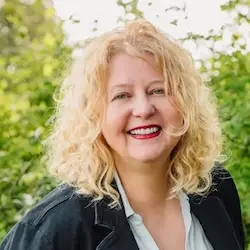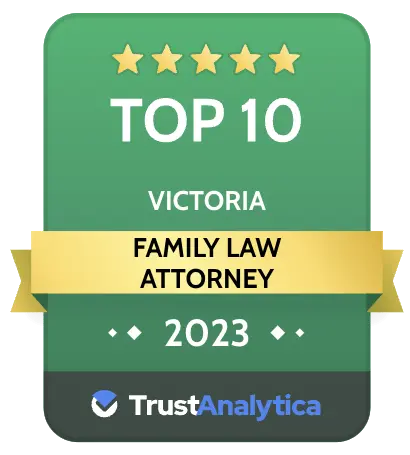Discover more. If your divorce is inevitable, choose the BETTER Path: join our newsletter for supportive, resolution-focused information!

How Collaborative Family Law Simplifies Divorce in B.C.
- Home
- Amicable divorce
- Collaborative Family Law
If you and your spouse are separating or thinking about separating you may be looking for a way to resolve your issues and come to an agreement outside of court.
If this is the case, you may want to consider the collaborative family law process. This process is available in Canada and we have been practicing it extensively, here at Pathway Legal in Victoria and throughout British Columbia.
Quick Links
What is collaborative family law in British Columbia?
Collaborative Law is a legal process that addresses the emotional, financial and legal issues that arise as you transition through the end of a relationship.
The heart of collaborative practice or collaborative divorce is to offer you and your spouse or partner the support protection and guidance of your own lawyers but to resolve disputes respectfully and without going to court.
VIDEO: How Pathway Legal uses collaborative family law for stress free divorces
What is so different about collaborative family law?
In collaborative practice, there are three core elements:
- Negotiate a mutually acceptable settlement without having courts decide issues.
- Maintain open and transparent communication.
- Create shared solutions acknowledging the highest priorities. More often than not, an individual’s highest priority is to move forward into the next chapter of their life, repairing what can be repaired while causing little or minimal damage in the process.
Does collaborative family law require special training in British Columbia?
As we've mentioned, the legal issues are only one aspect of the challenges that arise when individuals are separating or divorcing. The collaborative process allows you the benefit of working with other trained professionals to support you in various ways.
These professionals can include financial specialist divorce coaches and child specialists that can all work together as a team for the benefit of all parties.
It's also important to know that Collaborative divorce lawyers must take extra training, well beyond what they learned in law school, to become a member of the BC Collaborative Roster Society, and the same is true for the Victoria Collaborative Family Law Group. This is because the goal of a collaborative family law case is that everyone works together to reach a mutually agreeable outcome for all involved.
There is no winning and losing in collaborative law, which means that the lawyers involved have to be dedicated to the specific process itself, and also skilled enough to be able to negotiate settlements that benefit everyone involved.
Lawyers have to take in-depth training to qualify as a collaborative divorce lawyer
In order to be a member of the collaborative law roster in British Columbia, lawyers must be:
A member in good standing of:
- The International Academy of Collaborative Professionals; and
- They must have liability insurance of a minimum amount of $1,000,000 either through their professional organization or third party coverage.
The membership requirements for collaborative divorce lawyers in British Columbia are as follows:
- Membership in good standing with the Law Society of British Columbia, with no practice restrictions related to the practice of family law;
- No less than 12 hours of basic Interdisciplinary Collaborative training. Those qualified trainings must meet the International Association of Collaborative Professionals Minimum Standards;
- No less than 30 hours of training in client-centered, facilitative conflict resolution (mediation training - interest-based, narrative or transformative mediation programs).
- No less than 14 hours of family violence screening training (identifying, assessing and managing family violence and power dynamics in relation to dispute resolution processes design). Qualified trainings are those provided by the Justice Insitutute of British Columbia’s Centre for Conflict Resolution, or Continuing Legal Education British Columbia, or any other training provider that is recognized as providing high quality training in this field.
- A minimum of 15 hours of training or education in the following specific areas: Interest-based negotiating training, Communication skills training, Family dynamics, The impact of separation and divorce on children and families, Further collaborative training, Advanced mediation skills, and Further interdisciplinary collaborative training.
6. Must have completed eight (8) collaborative files with signed participation agreements within the previous 5 years.
In order to qualify as a lawyer at Pathway Legal, all lawyers must be committed to obtaining the skills and qualifications necessary to become a collaborative divorce lawyer.
The above-noted training takes a significant investment for lawyers to complete.
It is the dispute resolution techniques that our lawyers have that are part of the Pathway Legal difference, and part of the Pathway Legal Promise to you.
Important Related Pages
Will collaborative family law save me money?
You might think "wow" there are a lot of moving parts here and that it sounds complicated or expensive.
However, in our experience, utilizing the collaborative family law process costs less money, less emotional stress, and takes less time than other methods of resolving disputes. In collaborative family law, parties have access to the appropriate support at the outset. It allows people the best opportunity to play an active role in decision making that will affect them for a long time to come. Generally, at Pathway Legal, we find that collaborative family law greatly reduces the likelihood of conflict. Litigation becomes highly unlikely in the future as well.









